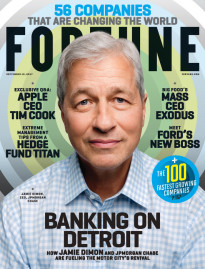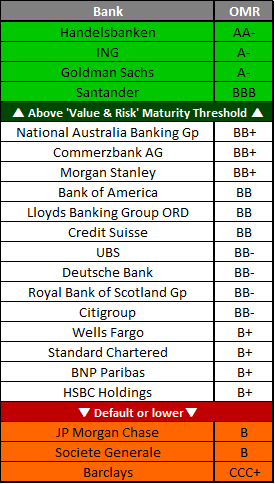 Please note – this post contains some, intentional, strong language, which readers of a certain sensibility may find offensive.
Please note – this post contains some, intentional, strong language, which readers of a certain sensibility may find offensive.
I had never before considered just how socially irresponsible cows could be until I came across Fortune Magazine’s ‘Change the World list’ yesterday . These generally docile creatures, who have brought us all so many benefits for so long; how could they possibly be doing us any harm? It turns out that by just chewing the cud they produce dangerously high levels of methane every day. This is why Fortune awarded DSM, the company that has developed animal feed to reduce these noxious emissions, the No. 2 slot in its Top 10 companies that “.. are using the profit motive to solve a multitude of societal problems.”
I have no reason nor wish to question DSM’s motives. As far as I know they are doing the same as any other, profit-motivated, business: providing customers with what they want or need. I don’t know if they are doing it better than their competitors but they seem to be making money out of it. No, my only question is are they changing the world by setting an exceptionally high standard of societal value; as Fortune would have us believe? Maybe we can gain further insight and an answer by considering who else made it onto this list?
I have to admit I was very surprised to find that the No. 1 position is held by none other than that beacon of enlightened capitalism, incorruptible corporate governance and social-mindedness, JP Morgan Bank. You might just want to catch your breath for a moment (methane levels notwithstanding) as you digest that information. Yes, the US bank that has already incurred over $40 billion of fines for misconduct is deemed by Fortune magazine, and Professor Michael Porter’s FSG group at Harvard Business School, to be the best example they could come up with to reassure the rest of the world that capitalism is now back in safe and responsible hands.
The case study used to justify the top position is the ‘community’ work that JPM have been doing in Detroit: a once vibrant city that went bankrupt, primarily through the decline of the US automotive industry as its giants chased profits rather than societal value. Now JPM’s CEO, Jamie Dimon, is on Fortune’s front cover and presumably happy that they are rewriting his own history as the white knight who rode into town as a saviour. In fact, JPM are doing no more than any other bank has ever done: making money out of lending money. Nothing more, nothing less. Of course, society also benefits when it performs this function well but when done badly (to the tune of $40 billion) society is the real loser and everything else Fortune tries to tell us about JPM and CSR is just premium grade bull****.
We might also ask whether Fortune would be worthy of a place in its own list; in terms of its own responsibilities to wider society? Are its journalists collecting all the relevant facts and evidence or does its own business model rest on glossing over any inconvenient truths? When we write reports at the Maturity Institute, we gather as much evidence as we can, to produce the whole picture, and assess that against our own very tough standards and measures of Total Stakeholder Value (see chart). 
In MI’s 2017 Banking Governance & Culture Report (see details of our free webinar), based on our OM30 indicators which include purpose, values and governance, JPM comes third from bottom. The bottom place goes to Barclays, which was downgraded last year after ex-JPM lifer, Jes Staley, took over as CEO in 2016.
Now here’s the rub. The Maturity Institute and FSG cannot both be right if the conclusions we have reached are so polarised. This polarisation is very easily explained though. Porter at Harvard Business School is still trying to justify the profit motive as the main driver of capitalism. While at the Maturity Institute we promote a clear definition of societal value; having already debunked Milton Friedman’s myth that the social responsibility of corporations is to make a profit. FSG might try to make JPM smell sweeter but Fortune Magazine still has to learn what the best PR people have always acknowledged – and there is no polite way to say this – you can’t polish a turd.
Comments are closed